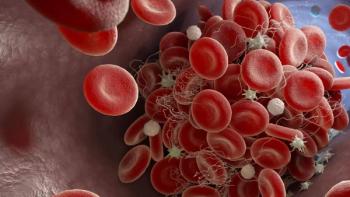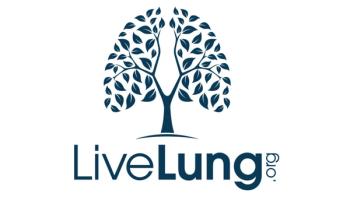
The FDA has granted breakthrough therapy designation to ficerafusp alfa with Keytruda for some patients with head and neck squamous cell carcinoma.

The FDA has granted breakthrough therapy designation to ficerafusp alfa with Keytruda for some patients with head and neck squamous cell carcinoma.

CURE spoke with Dr. Komal Jhaveri about the findings of the EMBER-3 clinical trial.

Pelvic health therapist Dr. Alison Ankiewicz helps women manage pain, intimacy issues and bladder or bowel problems that can follow cancer treatment.

CURE spoke with melanoma survivor Betsy Hamlin about her experience with subcutaneous Keytruda in a clinical trial.

Dr. Evan Garfein discussed OnPlant, a 3D breast model, and stressed timely reconstructive care for all patients during Breast Cancer Awareness Month.

Dr. Ravi Munver discusses how minimally invasive techniques allow patients to preserve kidney function and practical guidance for navigating treatment.

This guide provides a supportive overview of stage 2 melanoma, covering diagnosis, treatment options, and key questions for your medical team.

The DONNA Foundation will host its signature fall event, the DONNA 5K at TPC Sawgrass.

Sarcoma is a rare cancer of connective tissues that requires specialized diagnosis and care tailored to tumor type, stage, and patient needs.

Although a cancer diagnosis can feel overwhelming and isolating, patients should know that they are never alone, Brittney Nichols emphasized.

I share my journey facing breast cancer at 39, learning my numbers, trusting my doctor, and becoming my own advocate for informed treatment choices.

Jennie Smythe continues the conversation following her initial discussion on early detection self-advocacy during Breast Cancer Awareness Month.

The FDA granted fast track status to ADCE-D01, a targeted drug in early trials for soft tissue sarcoma, to speed development and review.

From diagnosis to treatment, here is what patients need to know about stage 1 testicular cancer.

Understand why early detection gives you the best chance, explore your surgery or radiation options, and plan for survivorship with oral cavity cancer.

Young women with breast cancer experience significant declines in body image, sexual satisfaction, and sexual interest both during and after treatment.

Dr. Vishal Patel explains what Libtayo’s FDA approval means for patients with high-risk cutaneous squamous cell carcinoma.

As a survivor, I see pink ribbons everywhere, but what we really need is more research, better treatments, and real change for those living with cancer.

Dr. Patrick J. Hensley explains non-muscle invasive bladder cancer, bladder-preserving treatments, trial eligibility, novel therapies and research priorities for patients.

The FDA granted fast track designation to VT3989 for unresectable malignant nonpleural or pleural mesotherlioma.

Dr. Ravi Munver highlights how minimally invasive treatment has improved recovery and quality, improving outcomes for patients with kidney cancer

Remote monitoring has been found to be associated with improved postsurgical recovery for patients with cancer.

Dr. Sheldon Marc Feldman explores Reiki’s potential to reduce stress and anxiety for patients undergoing breast cancer surgery at Montefiore Einstein Comprehensive Cancer Center.

The FDA has approved Libtayo for the postsurgical treatment of adults with cutaneous squamous cell carcinoma.

At the age of 34, I received the biggest news of my life, which was my diagnosis with colon cancer. I remember that day like it was yesterday.

Although death rates continue to decline each year, prostate cancer cases are increasing, especially those diagnosed at advanced stages.

The FDA granted fast track status to UB-VV111 for patients with relapsed or refractory large B-cell lymphoma or chronic lymphocytic leukemia.

Dr. Evan Garfein said 3D printing and tissue-engineered implants may make breast reconstruction safer, more personalized and less physically taxing.

It’s October, and social media sites are full of vendors selling merchandise featuring pink ribbons. But here's the thing...

LiveLung, a nonprofit organization dedicated to supporting lung cancer patients, invites the Charlotte cancer community to its monthly educational meeting.